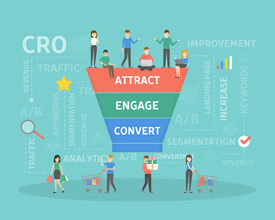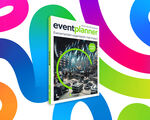Events are great for building and connecting with an audience. Whether you want to promote your brand or engage with your community, running an event is the most straightforward way to achieve your goals. But what if your intention is to attract more leads (which will later convert into clients)?
Can a conference, seminar, or product launch help you with this task? Definitely! Events are the perfect opportunity to show people how relevant and reliable your brand is.
Moreover, events are the ideal medium for building trust and getting your audience to pay more attention to your products or services. You can achieve through one event what you’ll never do through social media. Face-to-face interaction between your audience and your brand (aka brand representatives, aka real human beings) is so powerful that, if executed correctly, an event can lead not only to a higher conversion rate, but actually more sales.
Here’s a list of steps you’ll want to take when planning an event to increase the conversion rate and gain high-quality leads:
Step 1. Design a conversion funnel for your event
You can’t expect to increase the conversion rate at your events if you don’t have a conversion funnel. A conversion funnel is the representation of the buyer’s journey. The HubSpot conversion funnel is the most popular one. Based on four levels, the HubSpot conversion funnel focuses on:
- Attracting or getting people interested in your brand
- Converting or transforming audience into leads
- Closing or transforming leads into paying clients
- Delighting getting people to love your products even more
To make it simpler, you can base your event design on the three-stage funnel:
- The Top of the Funnel or people who aren’t aware of their challenges yet
- The Middle of the Funnel or people who are searching for a solution to their issue
- The Bottom of the Funnel or people who are analyzing different brands to find the best solution for their challenges.
Having this buyer’s journey in mind, you’ll be able to design your event accordingly and make sure you’re appealing to either a specific funnel stage or different stages.
Step 2. Only invite and accept qualified guests
When planning an event, make sure you know exactly who your ideal attendee is. Define the requirements this attendee should meet and reserve the right to veto people who don’t meet these demands when they’re registering.
Why is that so important? Let’s say, for example, that you’re running a marketing agency and planning an event for SaaS entrepreneurs. The last thing you want is to have other marketing agency representatives (your competition) attending your event. To keep this from happening, you’ll have to be careful with your qualification requirements and only invite SaaS founders.
Having particular registration requirements ensures you’ll only have qualified guests at your event who will respond positively (in most cases) to your efforts of guiding them through the conversion funnel.
Step 3. Accompany your attendees through their lead journey
Forget about conversion funnel automatization at your event. You’re dealing with people, and they want personalized attention. Make sure your team is at the event and ready to answer any questions your guests might have.
Also, design your event around your leads’ challenges and provide different solutions people can apply immediately. This shows your commitment to serving your community and audience. Apart from that, make sure you’re deploying a lead-nurturing strategy after the event, sending your guests relevant emails that will encourage them to take action.
Step 4. Set up experiences for each conversion funnel stage
For this step, let’s take the three-stage conversion funnel (ToFu, MoFu, BoFu) we previously described. So whenever you’re running an event that is uniquely focused on one funnel stage or all three, you’ll want to design different experiences for your attendees.
For those who are at the top of the funnel, for example, you can set up a roundtable with industry professionals who are tackling different challenges and multiple solutions to overcome them. For those who are at the MoFu stage, you can run a valuable workshop. And for those at the BoFu stage, you can set up a product demonstration. The thing to remember is that each funnel stage has different characteristics, so you’ll want to segment your guests accordingly.
Step 5. Provide clear calls to action
You can increase your conversion rate through an event without setting up specific CTAs for different funnel stages. For example, for those who are at the top of the funnel, you can prompt them into downloading useful content that will help them articulate and better assess the challenges they have.
For those at the middle of the funnel, you can ask them to access content that will help compare your product or service with other options. Finally, for those at the bottom of the funnel, you can convince them to get in touch with someone from your sales team for a demonstration. This way, your planning efforts won’t go to waste, and you’ll increase your chances of a higher conversion rate.
Convert your attendees into leads and customers
Events are a powerful communication and marketing tool. If executed correctly (meaning you’ll be providing real value to your attendees), you can expect to increase your conversion rate. To do that, make sure you have a conversion funnel. Invite the right guests to your event. Accompany your attendees through their entire experience and set up different dynamics for every conversion funnel stage. Finally, provide your guests with clear calls to action and get them on board by converting them into leads and customers.








Event management requires lot of things. Thank you for sharing.